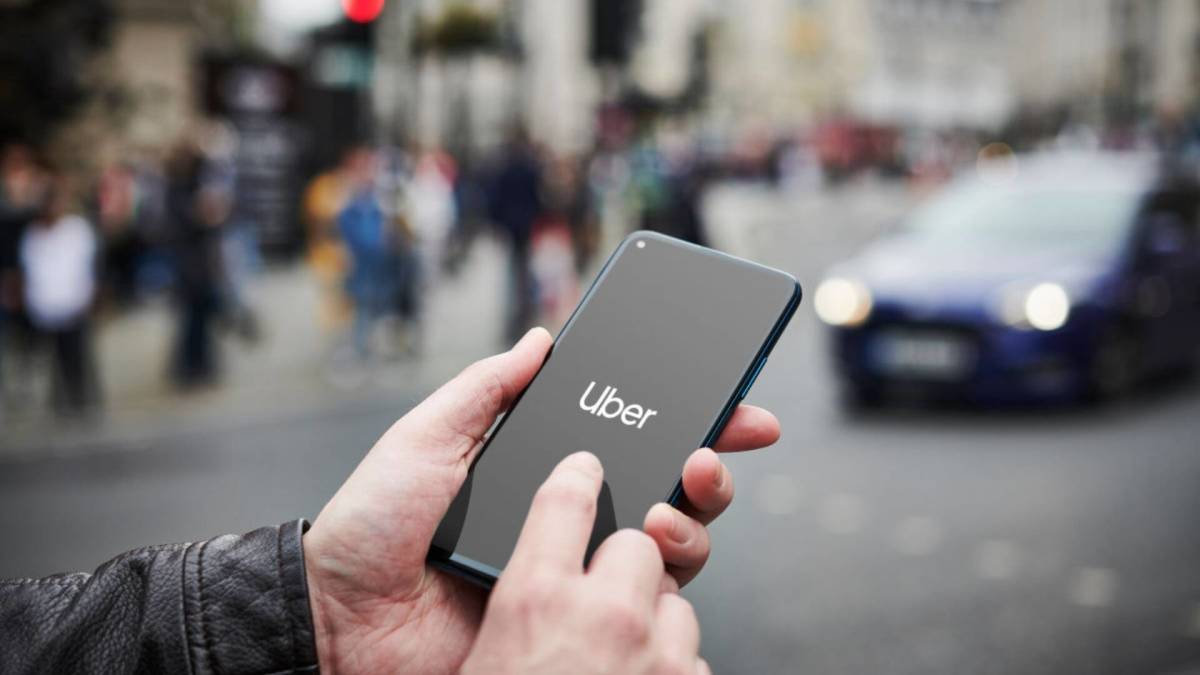Uber CEO gives employees a harsh wake-up call

Uber (UBER) has decided to make a controversial move to remain competitive, despite recently seeing increased consumer demand.
In Uber’s fourth-quarter earnings report for 2024, it revealed that the number of its monthly active customers increased by 14% year-over-year, and the number of trips booked through the Uber app spiked by 18% year-over-year.
💵💰Don’t miss the move: Subscribe to TheStreet’s free daily newsletter 💰💵
The increased demand contributed to Uber generating revenue of $12 billion during the quarter, which is 20% higher than what it earned during the same quarter in 2023.
Related: Google sends a harsh message to employees after layoffs
“Uber ended 2024 with our strongest quarter ever, as growth accelerated across MAPCs (monthly active platform consumers), trips, and Gross Bookings,” said Uber CEO Dara Khosrowshahi in the report.

Image source: Future Publishing/Getty Images
Uber CEO unveils a harsh new policy
Despite this record growth, Khosrowshahi recently sent a memo to employees informing them that “‘good’ is not going to be good enough” as the company embarks on big plans to remain competitive in its industry.
As a result, he warned them that they will soon be required to work in the office three days a week, according to a recent report from CNBC.
“Even as the external environment remains dynamic, we’re on solid footing, with a clear strategy and big plans,” said Khosrowshahi. “As we head into this next chapter, I want to emphasize that ‘good’ is not going to be good enough — we need to be great.”
Starting in June, employees will be required to work in the office from Tuesday to Thursday. The change comes after Uber announced in 2022 that workers were expected to be in the office two days a week and could use Tuesdays and Thursdays as “anchor days.”
Related: Intel sends a tough message to employees amid struggles
In the memo, Khosrowshahi said that the updated in-office mandate will also affect employees who were previously approved for remote work.
“Going forward, we’re further raising this bar,” said Khosrowshahi. “After a thorough review of our existing remote approvals, we’re asking many remote employees to come into an office. In addition, we’ll hire new remote roles only very sparingly.”
He said that going forward, Uber’s leadership team will monitor in-office attendance “at both team and individual levels to ensure expectations are being met.”
In the memo, he also emphasized that employees need to work harder so that Uber “can move faster and take smarter risks.”
“Our collective view as a leadership team is that while remote work has some benefits, being in the office fuels collaboration, sparks creativity, and increases velocity,” said Khosrowshahi.
Uber follows the lead of its competitors
Uber’s decision to scale back remote work follows in the footsteps of its peers in the tech industry.
Many companies, such as Amazon, Dell, and JPMorgan Chase, have recently cut back remote work and ordered their employees to work in the office five days a week, citing that in-person work sparks collaboration and innovation.
Last month, IBM also sent a memo informing employees that they must work in person at least three days a week from either a client location, flagship office, or sales hub.
More Labor:
- Amazon CEO gives hard-nosed message to employees
- IBM gives employees a rude awakening with harsh new policy
- Snapchat CEO teaches new employees a strict lesson
Intel will require its employees to work in the office four days a week starting in the third quarter of this year.
Google also recently doubled down on its current in-office requirement by warning its remote employees that they will lose their jobs if they don’t show up to the office three days a week.
As more companies shift gears on remote work, many employees aren’t ready to give up that freedom.
According to a recent survey from FTI Consulting, 70% of U.S. employees who either work a hybrid or fully remote schedule said they are “very likely” or “somewhat likely” to look for a new place of employment if they are required to return to the office full time at their current salary.
Also, 45% of the employees in the survey said that having the ability to work remotely or in a hybrid setting is one of the most critical aspects of their employment.
Related: Veteran fund manager unveils eye-popping S&P 500 forecast
#Uber #CEO #employees #harsh #wakeup #call






